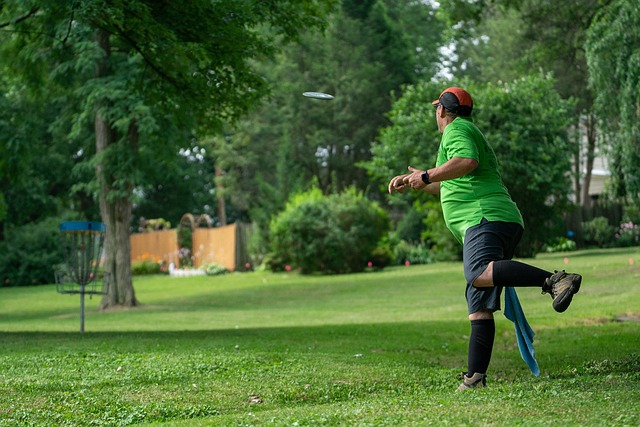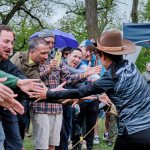Mental Game Mastery: How to Stay Focused and Confident on the Course
As golfers, we’ve all been there – standing over a shot, feeling the pressure and uncertainty, and wondering if we’ll be able to hit the ball as we’re thinking we should. The mental game can be a major obstacle for even the most skilled players, and it’s easy to let doubts and worries creep in and affect our performance.
But what if you could master your mental game, stay focused and confident on the course, and play to your full potential? The good news is that it’s entirely possible, and it all starts with developing a strong mental approach.
The Power of Visualization
Visualization is a powerful tool that can help you stay focused and confident on the course. By imagining yourself hitting a great shot, making a putt, or playing a hole with ease, you can prime your mind and body for success. Take a few minutes before you start your round to visualize yourself playing well, and you’ll be amazed at how much more confident you’ll feel.
Visualization is not just limited to seeing yourself playing well, but also includes the emotions and feelings that come with it. Imagine how you’ll feel when you hit a great shot or make a putt – excited, proud, and accomplished. By connecting with those emotions, you’ll be able to access them during your round, and use them to drive your performance.
The Importance of Positive Self-Talk
Positive self-talk is another crucial component of mental game mastery. The way we talk to ourselves can make or break our confidence and focus, so it’s essential to be mindful of our inner dialogue.
Instead of beating yourself up over mistakes or getting frustrated with missed shots, try to focus on positive affirmations. Tell yourself that you’re a great player, that you’ve got this, and that you’re ready to take on the course. Use phrases like “I trust my swing” or “I’m a great putter” to boost your confidence and keep you focused on the present moment.
It’s also important to acknowledge and accept your mistakes, rather than getting caught up in negative self-talk. By doing so, you’ll be able to learn from them and move on, rather than getting stuck in a cycle of frustration and doubt.
The Role of Breathing and Relaxation
Breathing and relaxation are often overlooked aspects of mental game mastery, but they’re essential for staying focused and confident on the course.
When we’re feeling stressed or anxious, our breathing tends to become shallow and rapid, which can further exacerbate our mental state. By taking slow, deep breaths, you can calm your nerves and center yourself, allowing you to stay focused on the task at hand.
Relaxation techniques like progressive muscle relaxation and visualization can also help to reduce tension and anxiety. Take a few minutes to tense and then relax different muscle groups, starting with your toes and working your way up to your head. This can help to release physical tension and calm your mind.
The Power of Focus
Focusing on the present moment is crucial for staying focused and confident on the course. When we’re thinking about the past or worrying about the future, we’re not able to fully engage with the present moment, and our performance suffers as a result.
Try to focus on your breathing, your swing, and the process of hitting the ball. Avoid thinking about the outcome or worrying about what might happen if you don’t hit the ball well. By staying present and focused, you’ll be able to execute your shots more effectively and stay confident throughout your round.
Conclusion
Mental game mastery is all about developing a strong mental approach to the game of golf. By visualizing yourself playing well, using positive self-talk, relaxing and focusing on the present moment, you’ll be able to stay focused and confident on the course, and play to your full potential.
Remember, it’s not just about hitting great shots – it’s about how you feel and react to them. By developing a strong mental game, you’ll be able to overcome the obstacles and doubts that arise during your round, and play with confidence and purpose.
FAQs
Q: How can I improve my visualization skills?
A: Start by setting aside a few minutes each day to visualize yourself playing well. Close your eyes and imagine yourself hitting great shots, making putts, and playing holes with ease. Use all of your senses to bring the visualization to life – see yourself standing over the ball, hear the sound of the club hitting the ball, feel the swing and the weight of the club in your hands.
Q: What if I’m struggling with negative self-talk?
A: Start by becoming more aware of your inner dialogue. Pay attention to the words and phrases you use to talk to yourself, and try to catch yourself when you’re being negative. Replace negative self-talk with positive affirmations, such as “I trust my swing” or “I’m a great putter”. Repeat these phrases to yourself throughout the day, and especially before you start your round.
Q: How can I reduce my anxiety on the course?
A: Start by practicing relaxation techniques, such as deep breathing and progressive muscle relaxation. Take a few minutes before you start your round to tense and then relax different muscle groups, starting with your toes and working your way up to your head. Also, try to focus on the present moment, rather than worrying about the future or dwelling on the past. Stay present and focused, and remind yourself that you’ve got this.








